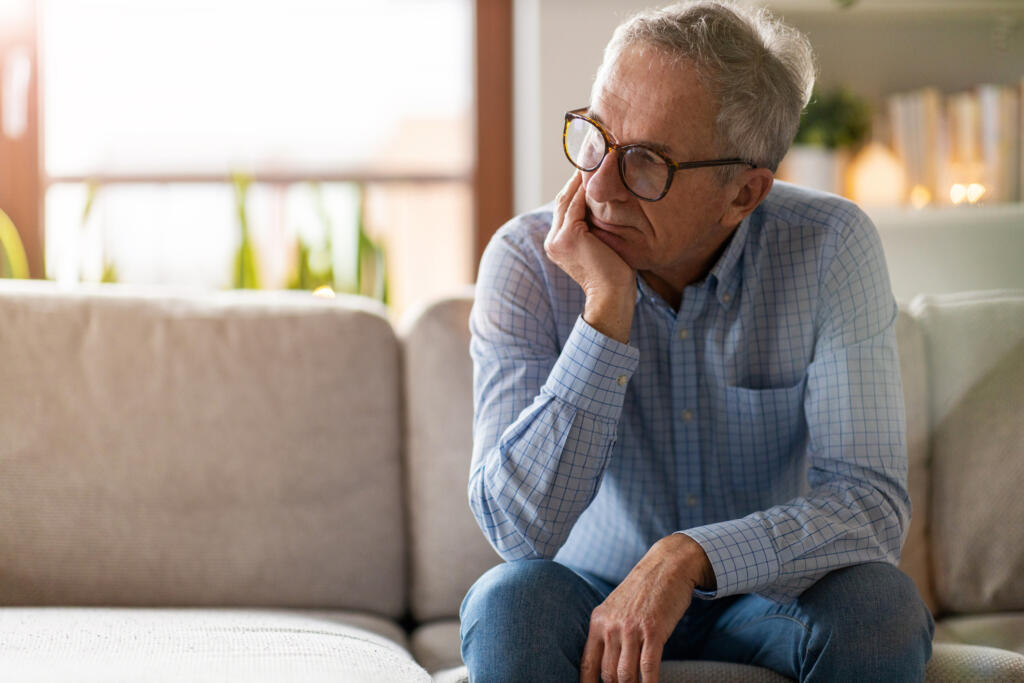
Loneliness can have a big impact on mental wellbeing and over the past few months during lockdown, it’s something that many of us will have experienced in some way.
In a recent video that we shared on social media, Sarah Atkinson, partner from our Family team, spoke to Claire Warr from Counselling Connection. They talked about what loneliness is, what it’s caused by and what we can do to alleviate its symptoms.
This article summarises the points from that discussion and offers Claire’s top tips.
What is loneliness and what does it mean?
Everyone experiences loneliness in their own, unique way, and it can be a response to many different situations. At its root though, loneliness is about an actual or perceived lack of connection with others.
People can experience loneliness when they are physically apart from people – as we have been during lockdown – but it’s also important to remember that people can suffer from loneliness when they are surrounded by people too. This can be due to a perceived sense that they don’t have a connection with the people they’re with – and that can cause feelings of loneliness and isolation.
What are the main causes of loneliness?
There is no one cause of loneliness – we’re all very different. However, it could be true to say that some triggers or life events can set off feelings of loneliness. Claire cited examples such as separating from a partner, moving areas, going to university and retiring.
Claire said: “Also circumstances – you may have fallen out or had a row with people in your household – that can make you feel lonely. You could also perhaps be going through a period where you are questioning your sexuality – that can set you apart from people around you too. It’s really anything that you think you’re experiencing that people won’t understand – that can really make people feel on their own.”
Why does it affect certain people more than others?
Again, it’s a range of different things. It could be to do with a person’s personal circumstances, previous life experiences or underlying mental wellbeing.
Claire explained: “It can also be to do with personality type. Extroverts, for example, absolutely thrive when in the company of others, whereas introverts find it more difficult. They lose their energy as a result of being with others. So in current circumstances, introverts may not be having as hard a time as the extroverted personality type.”
What can you do to alleviate loneliness?
The important thing to remember, Claire reminds us, is that everybody experiences loneliness very differently – and that we shouldn’t compare ourselves to others.
Claire told us: “What we like to do at Counselling Connection is work with a person to help them understand what their triggers are, what’s causing the loneliness for them and in doing that, they can come up with their own ideas – or we can work on ideas with them – on how to alleviate those symptoms.
“Obviously we do work with a lot of people who do experience loneliness however, and I can tell you some of the things that they have told us have helped them. But it’s important to remember that it’s just their suggestions and it’s about finding the things that help you that are critical here.”
Here are some of those tips:
Try to make connections with people
Whether it’s friends, family or people you don’t know yet, it’s important to stay connected with other people and make an effort to create new connections.
- Schedule regular contact with people you know – planning ahead can have huge benefits and give you something to look forward to;
- When you’re out doing your daily exercise, say hello to the people you meet. Try to make conversation with your local shopkeeper and postman; and
- Use social media – you can join groups online, attend peer support meetings and even get in touch with a counsellor.
As Claire said, “it’s good to talk to other people about what you’re experiencing”.
Get close to nature
Caring for your garden, watering plants or taking a walk in nature can really help boost feelings of connectedness to the people and things around you.
Care for other people and things
This can really enhance a person’s sense of purpose and connectedness to others.
Take care of yourself
“People that are lonely also often suffer from very low self-esteem,” Claire says. “So, it’s important that we start to take care of ourselves and value ourselves.”
She suggested getting enough sleep, taking exercise, eating the right things (a healthy, balanced diet) and trying to avoid too much alcohol.
Claire and her colleagues at Counselling Connection are also available for remote counselling sessions on Zoom – so if you’re struggling, please do give them a call.
